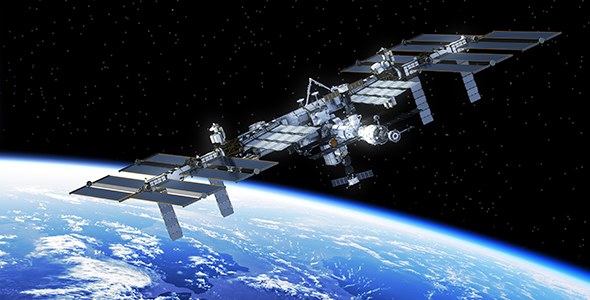By the bioMérieux Connection Editors
Humans inevitably take bacteria where ever we go, and space is no exception. Nitin Singh, the first author of a recent study published in BMC Microbiology, wanted to better understand how the International Space Station’s (ISS) closed environment affects microbial development and evolution. Singh said in an interview with Discover Magazine that, “Understanding how microbial life grows in a closed environment like the ISS will help us better prepare for the health concerns that come with space travel.”
Singh and his colleagues isolated Enterobacter species from samples taken from the space station’s toilet and compared their genomes to Enterobacter species from Earth. Although the space bacteria don’t pose any immediate threat to astronauts, the research team found that the bacteria were likely to be resistant to multiple antibiotics, and they could cause harm later on.
One of the strains the team found, Enterobacter bugandensis (E. bugandensis), is an opportunistic pathogen that has the potential to cause disease and could sicken astronauts in the future, especially because the human immune system is compromised in space. When the team analyzed the E. bugandensis species’ genomes, they identified one hundred twelve genes involved in virulence, disease, and defense. The researchers also found genes associated with multiple antibiotic resistance and toxic compounds.
Genomic analysis is just the first step in understanding pathogenic potential. The team suggests that researchers also need to analyze the bacteria in living systems, which will help identify how the low-gravity environment in space affects pathogenicity.
Did You Know?
One of bioMérieux’s instruments was originally developed back in the late 1980’s for NASA to use in space!
Opinions expressed in this article are not necessarily those of bioMérieux, Inc.



